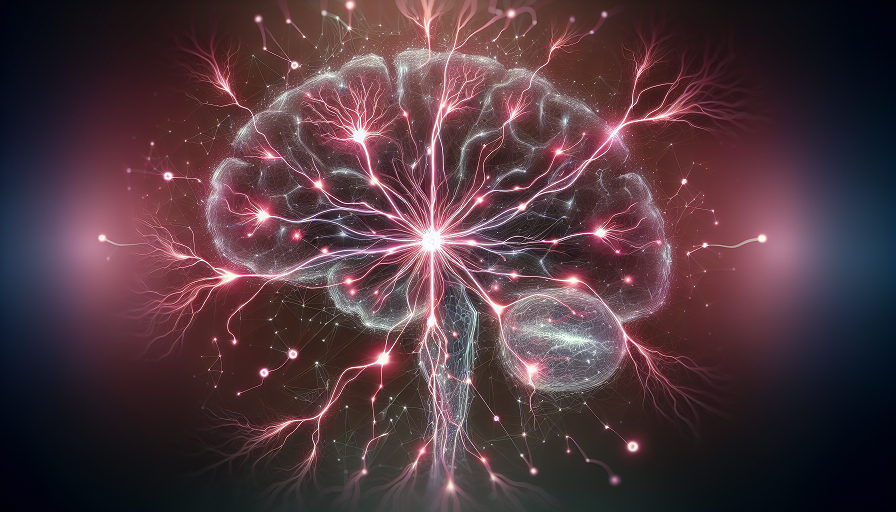
Yes, stress can physically rewire the brain by altering neural pathways, shrinking memory-related regions like the hippocampus, and strengthening circuits tied to fear and anxiety. Chronic stress reshapes brain structure and function, influencing how we think, learn, and regulate emotions.
Contents
- How Stress Affects the Brain
- Key Brain Regions Altered by Stress
- Evidence from Research
- How Stress Physically Rewires Neural Pathways
- Short-Term vs. Long-Term Stress Effects
- Psychological and Cognitive Consequences
- Can the Brain Recover from Stress-Induced Changes?
- Practical Strategies to Protect Brain Health
- The Bottom Line
How Stress Affects the Brain
When we experience stress, the body releases hormones like cortisol and adrenaline. While these are helpful in short bursts, prolonged exposure causes physical changes in brain circuits. The brain adapts by reinforcing survival pathways at the expense of memory and higher reasoning.
Key Brain Regions Altered by Stress
- Hippocampus: Chronic stress reduces its volume, impairing memory formation and learning.
- Amygdala: Becomes hyperactive, making the brain more reactive to fear and threat cues.
- Prefrontal cortex: Experiences reduced connectivity, weakening decision-making, focus, and emotional control.
- Corpus callosum: Stress alters white matter, disrupting communication between hemispheres.
Evidence from Research
- A Harvard Medical School review found that chronic stress leads to dendritic shrinkage in the hippocampus, impairing memory consolidation.
- Animal studies show that prolonged cortisol exposure rewires neural pathways, making the amygdala dominant over rational centers of the brain.
- Functional MRI scans in stressed individuals reveal decreased prefrontal activity and heightened amygdala response.
How Stress Physically Rewires Neural Pathways
- Synaptic pruning: Chronic stress reduces dendritic branches in memory-related neurons.
- Strengthened fear circuits: Repeated stress reinforces connections in the amygdala, prioritizing fear responses.
- Weakened executive control: Stress erodes pathways in the prefrontal cortex, reducing self-regulation.
- Impaired neurogenesis: Stress hormones suppress the growth of new neurons in the hippocampus.
Short-Term vs. Long-Term Stress Effects
- Short-term stress: Can sharpen focus and memory by releasing quick bursts of cortisol and adrenaline.
- Long-term stress: Physically alters brain wiring, leading to anxiety, poor memory, and reduced adaptability.
Psychological and Cognitive Consequences
- Memory impairment: Difficulty forming and retrieving new memories.
- Emotional dysregulation: Heightened reactivity, mood swings, and anxiety disorders.
- Reduced problem-solving ability: Impaired prefrontal function leads to poor decision-making.
- Increased vulnerability to mental illness: Chronic stress is linked to depression and PTSD.
Can the Brain Recover from Stress-Induced Changes?
The good news is that the brain remains plastic. With effective interventions, stress-related rewiring can be reversed:
- Mindfulness and meditation: Strengthen prefrontal cortex activity and calm the amygdala.
- Exercise: Boosts neurogenesis in the hippocampus and reduces cortisol levels.
- Social support: Promotes resilience and buffers against stress-induced brain changes.
- Quality sleep: Helps reset cortisol rhythms and consolidates memory.
Practical Strategies to Protect Brain Health
- Practice daily stress-reduction techniques such as deep breathing or yoga.
- Engage in physical activity at least 30 minutes a day to stimulate hippocampal growth.
- Maintain consistent sleep routines to regulate cortisol cycles.
- Strengthen social connections for emotional buffering against stress.
The Bottom Line
Stress does physically rewire the brain, shrinking regions tied to memory and strengthening circuits linked to fear and reactivity. However, with lifestyle interventions like meditation, exercise, and restorative sleep, the brain can recover and even strengthen its resilience against future stress.

